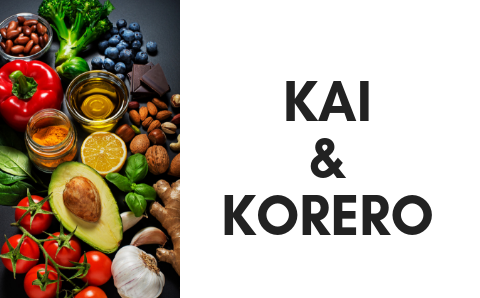
07 Aug Kai and Korero with Te Hiku Hauora
Toi Tangata, in collaboration with The Centre for Health, presented a Kai and Korero kaimahi and whānau workshop at Te Hiku Hauora July 3, 2019.
Part one of a two part workshop included combining the initial workforce development and research workshop to support both kaimahi and whānau to understand the things that make healthy eating easy or hard for whānau. It was also an opportunity for a collaborative approach to enable better support for whānau to eat well.
Key insights
Considering the social aspects and improvements necessary to improve health outcomes for whānau, we discussed metaphorically their ‘pātaka’ and the challenges for all whānau, including kaimahi, to successfully implement healthy initiatives in their rohe.
Participants described (healthier) kai as something that would follow as other societal issues improved ie the local food environment and the kai options sold. They recognised that barriers to health and nutrition within the community starts well before kai and access to kai.
Maataapono – Values around kai are different:
- Kids and whānau who are connected to their marae and the land have different values to those whānau who are trying to reconnect or are disconnected
- Life outside of our rohe widens values
- Kids growing up together
- Disconnection with urbanisation and its expectations
When asked “how might we find solutions to overcome some or all of the life challenges?” kaimahi and whānau said:
- “Develop an action plan to create a safe,healthy and enjoyable space.”
- “Get the community involved.”
- “Make a submission to council.”
- “Redesign the main street to include a walkway only area, alcohol and smokefree areas, comfortable seated areas for whanau to enjoy and korero, community garden, an entertainment area, create a community market sell and buy goods atmosphere.”
- “Provide pathways to employment.”
- “Encourage life-long education.”
- “Provide life skill training and support networks.”
- “Support whānau to be the best whānau/parent they can be.”
Kaimahi and whānau were asked “what do you think the next steps could be for you to succeed?”. They responded:
- “Share with colleagues.”
- “Encourage more whānau to attend.”
- “Support for Council submissions.”
- “We have an action plan, how do we implement it?”
- “Upgrade the main street.”
- “Another workshop to refine ideas.”
- “Deliver more into the barriers to good health, and what this means for whānau.”
“What were your key learnings?”
- “That we can all listen and learn and that many of us are coming from the same mind-set.”
- “What matters most is to celebrate the small things.”
- “Listen to others’ kōrero.”
- “The roles played by interested groups and their connections to whānau to assist active hauora within whānau hāpū.”
- “Getting kids to eat healthy can be done.”
- “Eating healthy is a mindset.”
- “Barriers start well before entering the supermarket.”
When it comes to our Toi Ako: Kai Maori Kai Ora workshops, the most important aspect of all is to ensure the organisation requesting workforce development has sovereignty over the process, content and how the wānanga is delivered.
If your organisation is interested in a Toi Tangata Toi Ako Kai Maori Kai Ora workshop please do not hesitate to contact sande@toitangata.co.nz.



